Therapy For Black Women
Are You So Overwhelmed With Taking Care Of Everyone And Everything Else That You’ve Lost The Connection To Yourself?
Do you have a hard time feeling seen and heard in your day-to-day life?
In caring for everyone else, is it difficult for you to take time for yourself?
Are you in search of a safe space where you can express yourself freely?
As Black women, we wear many hats—mother, sister, daughter, friend, family member, leader, employee. Juggling our responsibilities can be overwhelming, especially when we don’t give ourselves permission to take a break. This takes a toll on our minds and bodies, making us feel as though there is not enough time in the day for our needs to be met.
Many of us struggle with a nagging sense of perfectionism. We come from a family line of strong, stoic women who modeled resilience and survival—but often at the expense of their mental and emotional wellbeing. Though we were taught how to make sacrifices for the benefit of others, we weren’t given many opportunities to determine our own wants and needs. As a result, many of us feel like we give way more than we get.
Therapy offers women of color from all backgrounds and experiences a meaningful opportunity to reconnect with themselves and engage in new strategies for self-care. Working with someone whose only job is to listen to and support you in the counseling space, you can re-establish a sense of worthiness that will uplift, motivate, and protect your energy.
Send Me A Message!
Black Women Face Disproportionate Rates Of Trauma And Expectations To Remain Strong In The Face Of Struggle
Our bodies have masterful ways of keeping us safe and allowing us to persevere. Many of us have been living in survival mode for so long that we don’t even know another way to exist. However, the level of stress and anxiety many of us feel on a daily basis is often grounded in trauma, not reality. As a result, we perceive threats where there aren’t any, and we push ourselves to the very edge of what we can give before feeling completely burnt out and exhausted.
Though a lot of women share these struggles, many Black women, in particular, have to contend with the “Strong Black Woman” schema—the idea that we absolutely cannot falter in the face of adversity. Like other traits, this characteristic is often passed down from generation to generation, contributing to the belief that our successes not only belong to us—but to every woman who came before us.
Yet, the nervous system can only live in survival mode for so long until our resources are depleted. Without making time for self-care and self-actualization, everything else—from our work to our relationships to our daily routine—suffers.
Healing occurs when wounds are not only addressed but also validated. You matter, and your trauma is real. By working together in the safe space of counseling, you can discover new ways of connecting to yourself and strategies for coping with the challenges we face as Black women.
Therapy Offers You A Meaningful Opportunity To Explore And Overcome The Hurdles We Face As Black Women
In therapy, you are invited to explore and share the most tender of your wounds with someone who is deeply invested in your mental and emotional health. As you develop a new awareness of where your symptoms originated, you will be given individualized tools for escaping patterns that are no longer useful.
Through our work together, you can strengthen the mind-body connection in a way that facilitates balance, harmony, and healing.
What To Expect
Many of the Black women I work with in therapy were never given tools for identifying and expressing their emotions. As such, a big part of the counseling process will be offering you psychoeducation about trauma and its effect on the nervous system so that you can begin to recognize the relationship between your thoughts, feelings, and behaviors. This awareness will pave the way toward connecting to your truest self as you learn to identify and verbalize your needs.
Because I am a somatic (body-based) therapist, much of the work I do with women in counseling revolves around overcoming the body’s traumatic response. We do this by tuning into what the body is actually saying—as opposed to viewing symptoms as surface-level—and identifying the patterns keeping you stuck in stress mode.
That said, therapy is person-centered: individualized to the needs and goals of the women I see. If trauma-informed modalities are necessary to help clients recalibrate the nervous system and escape fight/flight/freeze, then I may incorporate elements of Somatic Experiencing and Dynamic Attachment Re-Patterning experience (DARe) as needed. Furthermore, because many of the Black women I work with in therapy come from religious backgrounds, I am more than happy to draw from Christian spiritual perspectives by request.
I know you have been living in survival mode for so long, but I am here to tell you that healing is possible. The counseling space is a warm, welcoming environment where you can come to just be. I will guide you in developing the skills and perspectives you need to make your life feel more manageable, balanced, and connected.
Still Unsure If Therapy Is Right For You?
I’ve tried therapy in the past, but it didn’t work. How will your approach be any different?
It’s not uncommon for Black women to feel unseen or even dismissed in the counseling space; our experiences are often invalidated by society at large. If you have tried therapy in the past but have not received the results you are looking for, it’s possible that the therapist-client connection was not quite right or that the treatment methods used were not individualized to your unique needs.
Whereas many clinicians take a conventional talk therapy approach, my style is much more body-based. I find that the deeper we can get to the root of the symptoms causing your discomfort, the more we can customize treatment to meet your needs. My therapeutic approach does not simply address surface-level issues—it builds coping and resilience from the inside out.
I’m worried that seeking help indicates weakness.
A lot of the Black women I work with in counseling feel shame and stigma about reaching out to a therapist; they worry that needing treatment somehow indicates weakness or an inability to manage life struggles on their own. Yet, that couldn’t be farther from the truth. Asking for help signals immense strength and fortitude—a commitment to making your life better.
Not only can therapy help you better manage the stress you experience on an individual level, but it can also drastically improve your performance and relationships in ways that will continue to benefit your life into the future.
You Don’t Have To Suffer Through Life Any Longer
As Black women, we face disproportionate rates of trauma and expectations to rise above adversity, but therapy gives us permission to prioritize ourselves. To find out more about my approach or to schedule an appointment, contact me.





